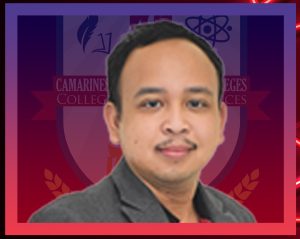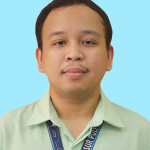
DR. MARLON S. PONTILLAS
Dean, College of Arts and Sciences
cas@cspc.edu.ph
(054) 288-4421 to 23
@cspc.cas
The College of Arts and Sciences (CAS) aims to produce well-rounded individuals who are well equipped with the necessary knowledge and skills in the arts and sciences and competent in their field of specialization so that they will become globally competitive professionals and leaders, and productive citizens of the country.
Specifically, the following are what CAS aims to achieve:
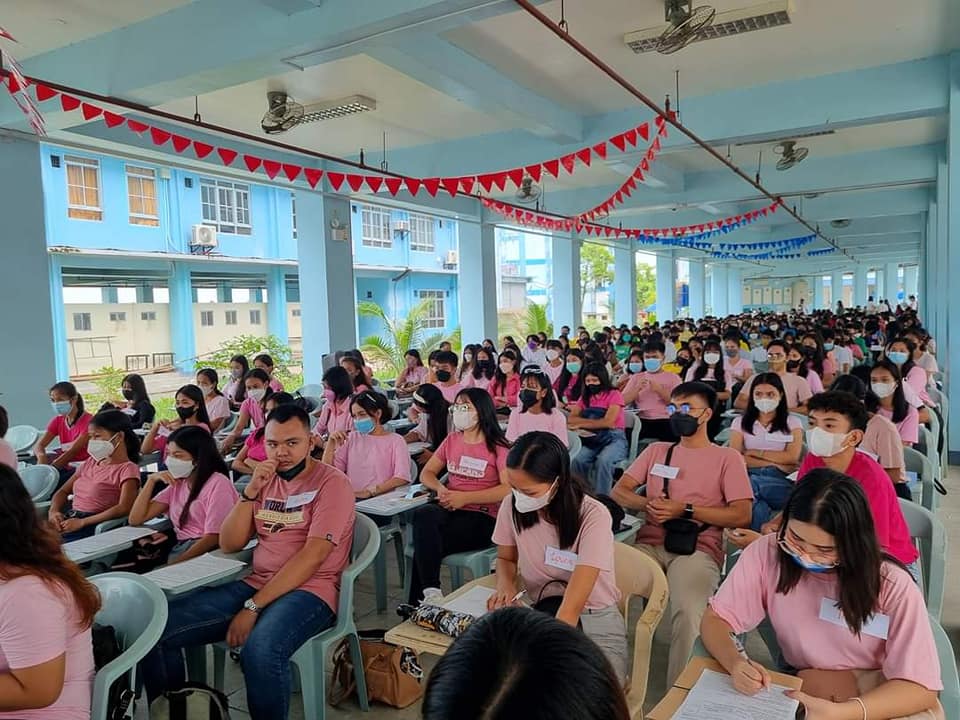
Be one of us!
Be part of the MalaCAS team!
FACULTY PROFILE
NOEL R. VOLANTE, PhD
Instructor I
Part-time Faculty
PhD in Development Education
MA in Communication
BA Development Communication
FILMOR J. MURILLO, MDC
Associate Professor III
PhD in English Studies: Language (ongoing)
Master of Development Communication
AB English
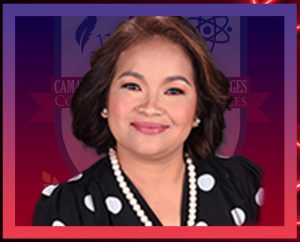
GIGI V. SEVERO, MAEd
Program Chair, BS in Development Communication
Instructor I
EdD in Educational Management (ongoing)
MAEd in English
BA in Communication
ALEX RALPH B. NIEVA, MSc
Program Chair, BS Mathematics
Instructor 1
MS in Mathematics
BS in Mathematics
ROWEL S. RAMOS, MAMathEd
Instructor III
PhD in Mathematics Education (ongoing)
MA in Mathematics Education
Bachelor of Secondary Education major in Mathematics
JIEL MARK D. JAGMIS, MSc
Program Chair, BS Applied Mathematics
Instructor 1
MS in Mathematics
BS in Mathematics
LIEZL B. NAMORO, MAEd
PhD in Mathematics Education (ongoing)
MAEd Major in Mathematics
BS in Mathematics
FRANCIS GERARD C. MAGTIBAY, MSc
Instructor I
MS in Mathematics
BS in Mathematics
JULYVEN MARTA FRIDAS M. PADRIGON, MS
Program Chair, Bachelor in Public Administration
Instructor I
PhD in Public Administration (ongoing)
MS Development Management and Governance
BS Agri-Ecotourism Management
ATTY. FREDDIE R. COLLADA
Instructor I
MA in Public Administration (ongoing)
Bachelor of Law
BS in Political Science
EUGENE N. ECLAR, JD
Instructor I
Bachelor of Law
AB in English
APRIL Z. LUZON, JD, PhD
Associate Professor III
PhD in Public Administration
Masters in Public Administration (ongoing)
MAEd in History
Bachelor of Law
BA in Political Science
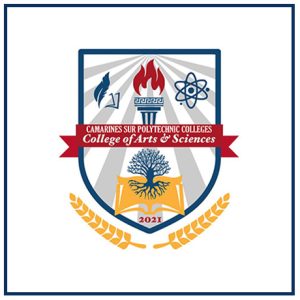
JOVI O. SOLOMO, MPA
Lecturer
PhD in Public Management
Master in Public Administration
AB Economics
PEDRO P. TURIANO, JD
Instructor I
Bachelor of Laws
Bachelor of Science in Accountancy
EVA C. SASULUYA, MAEd
Instructor III
PhD in Counselor Education (ongoing)
MAEd in Guidance and Counseling
BSEd major in Counselor Education
LEO FRANCIS B. BARBONIO, MAEd
Instructor I
PhD in Counselor Education (ongoing)
MAEd in Guidance and Counseling
AB Philosophy
JO VINCENT T. BARDAJE
Instructor I
MA in Social Psychology (ongoing)
BS in Psychology
MA. FRANCIA S. DE CHAVEZ, MAEd
Program Chair, Bachelor in Human Services
Instructor I
PhD in Counselor Education (ongoing)
MAEd in Guidance and Counseling
BS in Psychology

PATRICIA MARIELLE R. DE CHAVEZ
Instructor 1
MA in Counseling Psychology (ongoing)
BS in Psychology
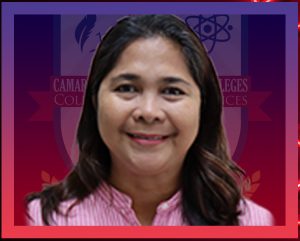
LENY O. FIGURACION, MAEd
Assistant Professor II
MAEd in Guidance and Counseling
BS in Psychology
MA. ZANDRA BONNINE V. SALCEDO, MAEd
Instructor I
PhD in Psychology (ongoing)
MAEd in Guidance and Counseling
BS in Psychology
PROGRAM EDUCATIONAL OBJECTIVES
Graduates of the Bachelor of Human Services program are expected to attain the following objectives 3-5 years after graduation.
PROGRAM OUTCOMES
Graduates of the program should be able to:
PROGRAM EDUCATIONAL OBJECTIVES
After three years of being graduated from BS Mathematics program, graduates will be able to:
PROGRAM OUTCOMES
Graduates of the program should be able to:
PROGRAM EDUCATIONAL OBJECTIVES
Within 3-5 years after graduation, the graduates of Bachelor of Arts in English Language Studies are expected to:
PROGRAM OUTCOMES
Graduates of the program should be able to:
PROGRAM EDUCATIONAL OBJECTIVES
Within 3-5 years after graduation, the graduates of Bachelor of Science in Development Communication are expected to:
PROGRAM OUTCOMES
Graduates of the program should be able to:
PROGRAM EDUCATIONAL OBJECTIVES
Within 3-5 years after graduation, the graduates of Bachelor in Public Administration are expected to:
PROGRAM OUTCOMES
Graduates of the Bachelor in Public Administration program should be able to:
PROGRAM EDUCATIONAL OBJECTIVES
After three years of being graduated from BS Applied Mathematics program, graduates will be able to:
PROGRAM OUTCOMES
Graduates of the program should be able to:
Program Educational Objectives and Program Outcomes
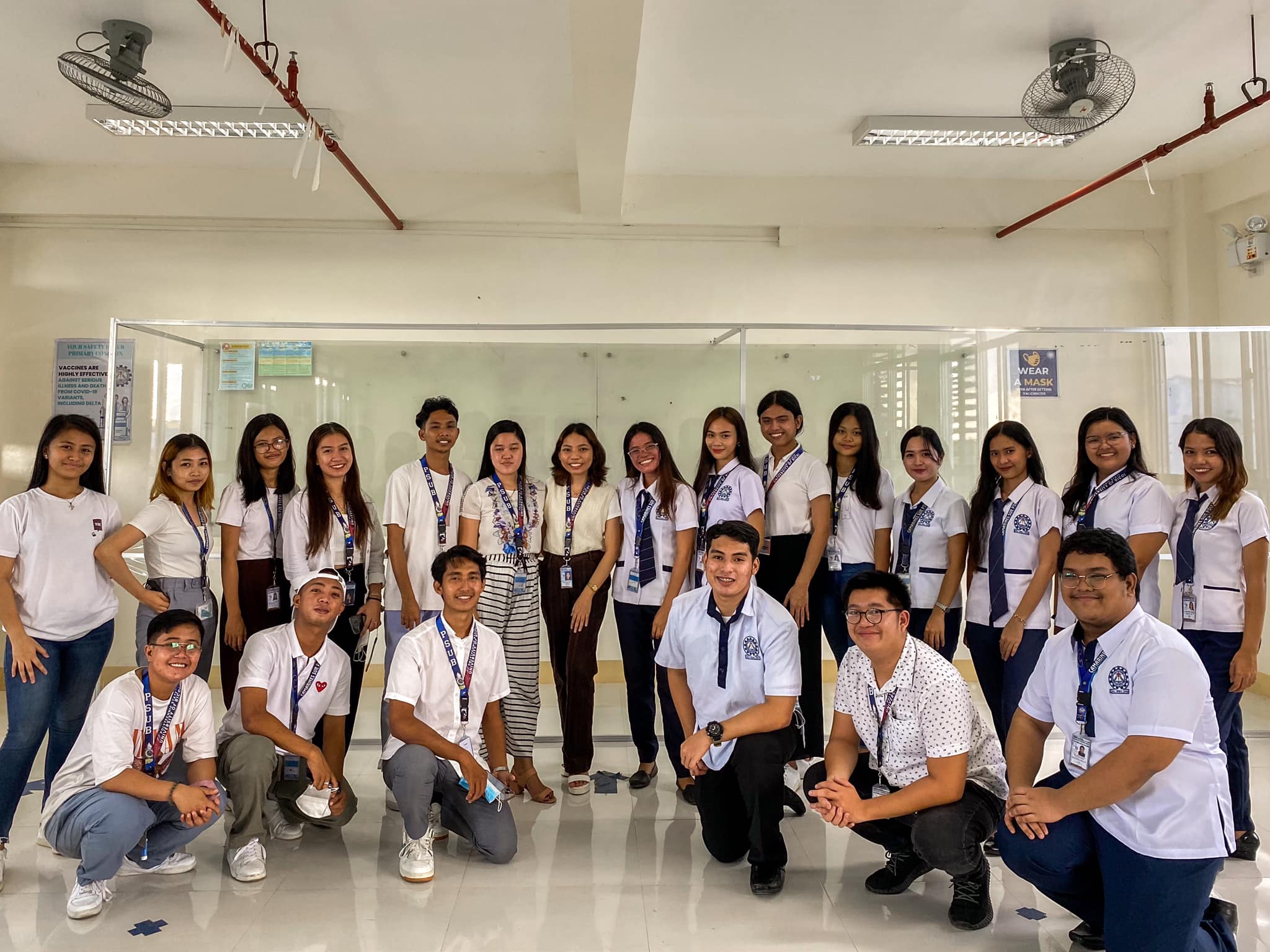
Student Organizations
